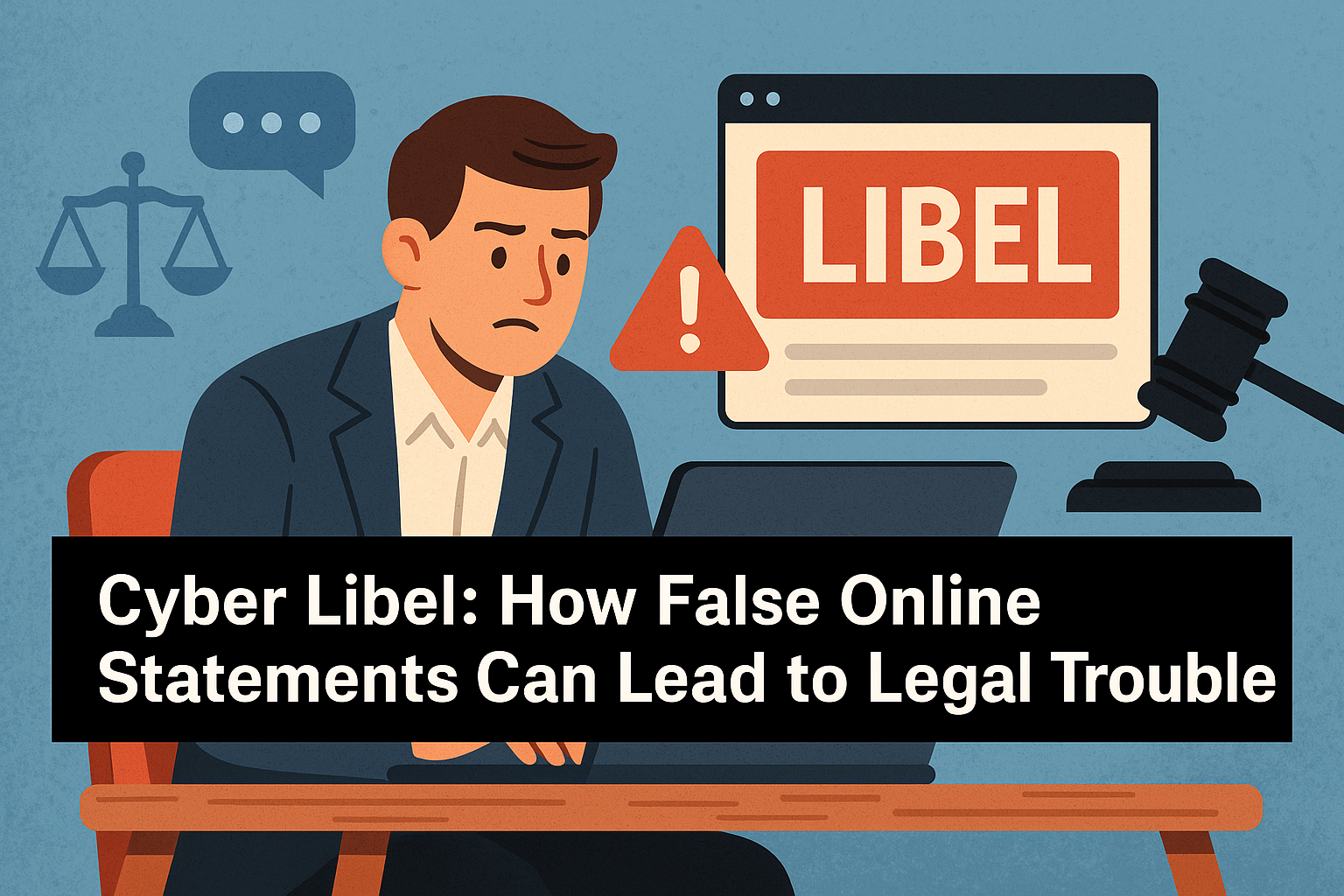Estimated reading time: 4 minutes
Table Of Content
Understanding Cyber Libel
Cyber libel, also known as online libel, occurs when someone publishes a false and harmful statement about another person or business on the internet. Unlike slander, which involves spoken words, libel is written and thus leaves a lasting trace across blogs, forums, news comments, and social media platforms.
What Makes a Statement Libelous?
To qualify as libel, the statement must:
- Be false
- Be presented as fact, not opinion
- Be published or publicly visible
- Cause actual harm (reputational, financial, emotional)
- Be made with negligence or malice
Statements that are merely offensive, rude, or critical don’t typically meet the legal standard—unless they falsely state facts that damage someone’s character or business.
Real-World Examples of Online Libel
Case: Blogger Targets Local Business
A blogger posted multiple false allegations claiming a restaurant violated health codes and served unsafe food. The business experienced a severe drop in customers.
Outcome: The court ordered the blogger to pay $250,000 in damages and remove all defamatory content.
Case: Former Employee Slanders Company
An ex-employee left false reviews on job boards and industry forums accusing a former employer of fraud.
Outcome: A libel suit led to an out-of-court settlement and a signed agreement preventing further false publication.
Legal Consequences of False Statements Online
Online libel is actionable in civil court and, in some countries, may even carry criminal penalties. In the U.S., libel is usually handled as a civil matter under state law.
Potential Consequences Include:
- Financial Damages: Compensatory and punitive damages can be awarded.
- Injunctions: Court orders to remove or stop posting content.
- Public Apologies: Some cases result in mandatory retractions.
Steps to Take If You’re a Victim of Cyber Libel
1. Preserve the Evidence
Save:
- Screenshots
- URLs
- Timestamps
- Usernames or IP addresses
Use archiving tools like Wayback Machine or PageVault to document.
2. Report the Libel
Most platforms offer ways to report content:
3. Contact the Poster (When Safe)
Reach out professionally. In many cases, the defamer may retract their statement after realizing the legal implications.
Dear [Name],
Your recent post contains false information that is causing serious harm. Please remove the statement within 72 hours or we will explore legal remedies.
Sincerely, [Your Name]4. Send a Cease and Desist Letter
This is a formal demand to stop making defamatory statements. It can be issued by an attorney or via an online content removal company like Defamation Defenders.
5. Consider Legal Action
If the content persists, defamation lawsuits may be the best path forward. Strong cases with clear damages often settle or result in judgment.
Preventing Cyber Libel
You can’t stop people from posting online, but you can build a strong reputation defense:
- Monitor mentions using tools like Google Alerts
- Secure your name on all major platforms
- Keep a professional and transparent web presence
- Educate employees or partners on online etiquette
How Defamation Defenders Can Help
If you’re facing cyber libel or need to remove false statements online, Defamation Defenders offers expert services including:
- Legal coordination and cease and desist support
- SEO suppression strategies
- Content removal assistance
- Court order execution for takedowns
🎯 Get Help Now – Free consultation with experienced specialists.
Related Content:
FAQ: Cyber Libel and Online Defamation
Yes. Libel is a type of defamation involving written or published statements.
Yes, though international lawsuits are more complex. Jurisdiction depends on where the harm occurred and where the content was published.
Varies by state. Most range between 1 to 3 years from the date of publication.
Yes, but they must prove actual malice—that the statement was knowingly false or reckless.
If documented before deletion (e.g., screenshots), you can still pursue legal action.



